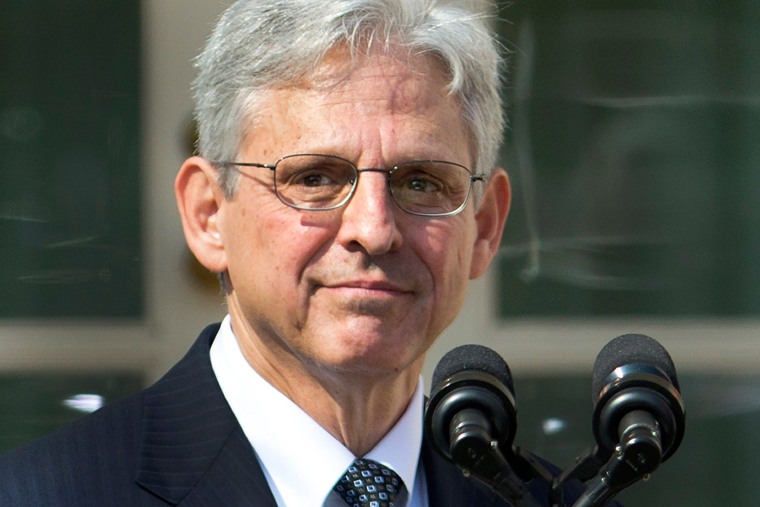Supreme Court nominee Merrick Garland submitted a questionnaire detailing his experience to the Senate Judiciary Committee on Tuesday, taking another step in the White House's effort to break a Senate blockade on his nomination.
Although the committee chairman, GOP Sen. Charles Grassley of Iowa, has said he won't consider the nomination, the White House had Garland fill out the questionnaire anyway. The committee posted the document online, as is routine with all nominations.
Garland is currently the chief judge of the U.S. Court of Appeals for the District of Columbia Circuit. In the document, Garland lists details of his work experience, his biographical background, his memberships and associations, his most significant cases, pro bono work and financial information.
Related: Conservative Site Calls for Confirmation of SCOTUS Nominee Merrick Garland
His account of his most significant opinions includes one that upheld a ban on campaign contributions from federal contractors. Another affirmed the application of the Endangered Species Act to a commercial real estate project that threatened a protected toad. Two others sided with people mounting job discrimination lawsuits.
In his long career on the bench and as a Justice Department official before that, Garland developed a reputation for being pro-prosecutor and pro-government.
But in his listing of significant opinions, he includes one case in which he vote to throw out a criminal conviction for a drug trafficking conspiracy, a second dissenting opinion in which he would have allowed lawsuits to continue against private contractors over allegations of abuse at the Abu Ghraib prison in Iraq and a third that sided with a Uighur detainee at Guantanamo Bay who challenged his status as an "enemy combatant."
Garland reported that he was first called by the White House about the Supreme Court vacancy on Feb. 29 — 16 days after Justice Antonin Scalia's death.
The White House said the questionnaire is intended to present "an exhaustive picture" of Garland's service on the bench and of his "impeccable credentials."
The questionnaire is a standard early step in the vetting of any judicial nominee. The lengthy survey typically is drafted by the committee, completed by the nominee, and then reviewed and made public by the committee in advance of committee hearings.
But in Garland's atypical nomination, the questionnaire has become another tool in the White House pressure campaign. Senate Republicans have maintained that the next president should choose the Scalia's replacement.
Garland has been meeting privately with senators on so-called courtesy visits and conducted some prep sessions with the White House.
As he sends up his questionnaire, he's slated to meet Tuesday with Sen. Ron Johnson of Wisconsin and Sen. Brian Schatz, D-Hawaii, the White House said.
"We expect that upon receiving the questionnaire, Senate Judiciary Committee members will do their jobs by reviewing the information, scheduling a hearing so that the American people can hear directly from Chief Judge Garland as he answers questions under oath, and giving him a fair up or down vote," Hoffine said.
Garland plans to continue his meetings with lawmakers this week. Garland is slated to meet with Sens. Barbara Mikulski, D-Md., Ed Markey, D-Mass., and Tom Carper, D-Del., on Wednesday and Sen. Jon Tester, D-Mont., on Thursday, the White House said.
